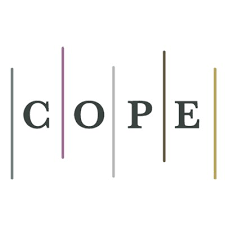Evaluating Customer Trust in E-Commerce with a Combined Approach to Structural Equations and Artificial Neural Networks
DOI:
https://doi.org/10.52547/ijimes.1.1.83DOR:
https://dorl.net/dor/20.1001.1.27832678.2021.1.1.6.6Keywords:
E-Trust, E-Commerce, Structural Modeling, Artificial Neural NetworksAbstract
Purpose: Due to the increasing familiarity of people with the Internet and considering the many benefits of online shopping, the fields of its use have grown rapidly. At such a stage, in case of mistrust among customers, this new phenomenon will fail in the first steps of progress. Organizing and supervising online stores is one of the essential indicators of e-commerce development, so that the electronic receipt and payment system for providing goods must be done in a safe and correct environment.
Methodology: In this paper, various descriptive and inferential methods as well as neural network method for data analysis and PLS intelligent software are used to establish causal relationships of independent variables with dependent variables and MATLAB software is used to measure and predict dependent variables.
Findings: The proposed model showed the priority and importance of key parameters and indicators affecting online trust.
Originality/Value: The most important purpose of this study is to examine the dimensions and components of trust in the context of online shopping. Structural equations, as well as neural networks, have been used for this analysis.
Downloads
References
Salehi, F., Abdollahbeigi, B., & Sajjady, S. (2021). Factors affecting the trust in the online shopping and E-commerce Success of Companies. Asian Research Journal of Current Science, 1-5.
Nouri, F., & Ghahremani Nahr, J. (2019). Structural-interpretative Patterns of Factors Affecting the Sustainable Development of Agricultural Production Cooperatives (Case Study: East Azerbaijan Province). Journal of Agricultural Economics and Development, 33(3), 281-297.
Ghahremani Nahr, J., Pasandideh, S. H. R., & Niaki, S. T. A. (2020). A robust optimization approach for multi-objective, multi-product, multi-period, closed-loop green supply chain network designs under uncertainty and discount. Journal of industrial and production engineering, 37(1), 1-22. doi: https://doi.org/10.1080/21681015.2017.1421591
Aslam, W., Hussain, A., Farhat, K., & Arif, I. (2020). Underlying factors influencing consumers’ trust and loyalty in E-commerce. Business Perspectives and Research, 8(2), 186-204. doi: https://doi.org/10.1177/2278533719887451
Turban, E., King, D., Lee, J. K., Liang, T. P., & Turban, D. C. (2015). Business-to-business E-commerce. In Electronic Commerce (pp. 161-207). Springer, Cham. doi: https://doi.org/10.1007/978-3-319-10091-3_4
Aliahmadi, A., Sadeghi, M. E., Nozari, H., Jafari-Eskandari, M., & Najafi, S. E. (2015). Studying key factors to creating competitive advantage in science Park. In Proceedings of the Ninth International Conference on Management Science and Engineering Management (pp. 977-987). Springer, Berlin, Heidelberg. doi: https://doi.org/10.1007/978-3-662-47241-5_82
Hoffman, D. L., Novak, T. P., & Peralta, M. (1999). Building consumer trust online. Communications of the ACM, 42(4), 80-85. doi: https://doi.org/10.1145/299157.299175
Juliana, J., Pramezwary, A., Patricia, V., Josephine, J., Lewinsky, S., & Putra, H. D. (2021). Understanding the Determinants of Hotel Consumer Trust: A Perspective Commitment-Trust Theory. International Journal of Social and Management Studies, 2(2), 114-121. doi: https://doi.org/10.5555/ijosmas.v2i2.22
Elyasi, M., Mohammadi, M., Baharloo, M., Khosropour, H., & Taheri, Z. (2021). Developing a Knowledge Managements Framework for identification of Success factors in the Product Acquisition Cycles-case of aviation Industries Organization. International Journal of Innovation in Engineering, 1(1), 76-100. doi: https://doi.org/10.52547/ijie.1.1.72
Nozari, H., Fallah, M., & Szmelter-Jarosz, A. (2021). A conceptual framework of green smart IoT-based supply chain management. International Journal of Research in Industrial Engineering, 10(1), 22-34. doi: 10.22105/riej.2021.274859.1189
Jiang, Y., & Lau, A. K. (2021). Roles of consumer trust and risks on continuance intention in the sharing economy: An empirical investigation. Electronic Commerce Research and Applications, 47, 101050. doi: https://doi.org/10.1016/j.elerap.2021.101050
Mengjie, W. (2021). Internet marketing and customer loyalty: Perfect Diary, as an example (Doctoral dissertation).
Bekamiri, H., Ghasempour Ganji, S. F., Simonetti, B., & Seno, S. A. H. (2021). A New Model to Identify the Reliability and Trust of Internet Banking Users Using Fuzzy Theory and Data-Mining. Mathematics, 9(9), 916. doi: https://doi.org/10.3390/math9090916
Hoang, D. P., & Nguyen, N. H. (2020). The impact of corporate social responsibility and customer trust on the relationship between website information quality and customer loyalty in e-tailing context. International Journal of Internet Marketing and Advertising, 14(3), 215-235. doi: https://doi.org/10.1504/IJIMA.2020.108715
Salameh, A., Hatamleh, A., Azim, M., & Kanaan, A. (2020). Customer oriented determinants of e-CRM success factors. Uncertain Supply Chain Management, 8(4), 713-720. doi: 10.5267/j.uscm.2020.8.001
Wang, W. T., Wang, Y. S., & Liu, E. R. (2016). The stickiness intention of group-buying websites: The integration of the commitment–trust theory and e-commerce success model. Information & Management, 53(5), 625-642. doi: https://doi.org/10.1016/j.im.2016.01.006
Aliahmadi, A., Jafari-Eskandari, M., Mozafari, A., & Nozari, H. (2016). Comparing linear regression and artificial neural networks to forecast total productivity growth in Iran. International Journal of Information, Business and Management, 8(1), 93.
Aliahmadi, A., Jafari-Eskandari, M., Mozafari, M., & Nozari, H. (2013). Comparing artificial neural networks and regression methods for predicting crude oil exports. International Journal of Information, Business and Management, 5(2), 40-58.
Published
How to Cite
Issue
Section
License
Copyright (c) 2021 Saeid Salam

This work is licensed under a Creative Commons Attribution 4.0 International License.












